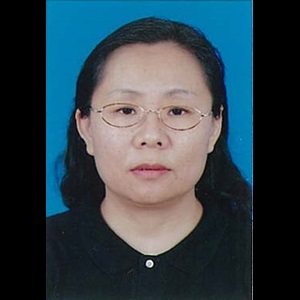


Learning Chinese at The University of Idaho isn't that difficult
Hexian Xue, a professor of Chinese at the University of Idaho (UI), believes learning Chinese really isn't as hard as Americans might think.
"When students attend the first few classes, to be honest, they do not have the confidence to learn the Chinese language well," Xue said. "But step by step, day by day, for at least some of the students, they become comfortable to say, 'Chinese is not as hard as I assumed.' "
Xue, who teaches multiple levels of Chinese as well as a cultural course on Chinese cinema, is a co-director of the UI's Confucius Institute. The institute's goal is to spread knowledge about the Chinese language and culture.
"As you know, the English language and the Chinese language are two very different languages. The pronunciation is different, the spelling is different and the grammar is different," Xue (pronounced sh UH eh) said. "There has been, for a very long time, an assumption among the people, particularly among the community around us, that it is very hard to acquire the language."
To combat this assumption, the Confucius Institute holds community Chinese language classes in Moscow, Coeur d'Alene and Boise. In Moscow, the classes consist of two levels of Mandarin, each only $50 for the fall, and a Chinese calligraphy class at only $25. They're held Monday through Thursday in the Moscow Chamber of Commerce office.
In terms of memorizing words, Xue said Chinese can actually be simpler to learn than English for non-native speakers of any language, since the verb tenses never change.
"In the English language, be can be converted into am, is, are, shall be, will be, may be, could be, could have been, might have been, would have been, will have been. So, be - it is a very simple word. Native speakers of English think, 'Oh, so simple,' but to the speaker of Chinese, it is very frustrating," Xue said. "In Chinese, we say, 'he works as a reporter,' not 'he is a reporter.' "
Spelling is also a bit more straightforward in Chinese than in English, Xue said.
"In English, from the spelling perspective, there is no shared part. But in Chinese, there is a shared radical," Xue said. "As long as they find the shared radical that is related to water, they can memorize the word."
A radical is a component of a Chinese character, or hanzi, which makes up the graphic rendering of a word in Chinese, compared to the use of the Latin alphabet in English. Words like ocean, sea and river look totally different in English, but in Chinese characters, they all share a radical that symbolizes water.
Another difficult quirk that is hard for American students to grasp is that there is a distinct name for each family member, such as between maternal and paternal grandparents, Xue said.

Professor Hexian Xu
Xue came to the states after the UI and her home university, South China University of Technology, established a partnership in April 2013, which founded the Confucius Institute. Xue's field is lexicology - dictionary making.
"For my Ph.D. research, I advocate that the dictionary for non-native speakers of Chinese should be different from the dictionary for native speakers," Xue said. "For native speakers of Chinese, the dictionary does not need to demonstrate, it does not need to label. But according to our research, the non-native speakers, they think it is difficult, and they need the dictionary to label, to demonstrate in an easy way for them to grasp."
Xue intends to use her experience teaching the language to American students to better develop an English-to-Chinese dictionary.
"To come to the University of Idaho, for me, while I teach Chinese, I can do some research and give academic suggestions to the lexicographer in China to compare and develop an ideal dictionary," Xue said.
Xue said she believes it's critical for all people, no matter their culture, to learn a foreign language.
"Not everybody can afford the time, afford the money, to travel over the world, to go to other places out of their own country. But to learn a foreign language, to learn Chinese, it gives people an intangible window," Xue said. "The window cannot be touched, but there is a window to see outside, to know what kind of way the people outside of your native country, how they live, how they work, how they communicate with the people around them."
Source: http://www.uidaho.edu/news/news-articles/media-coverage/2017-fall/101017-chineseculture
This article was originally written by Alysen Boston and published in the Moscow-Pullman Daily News on Tuesday, Oct. 10, 2017.